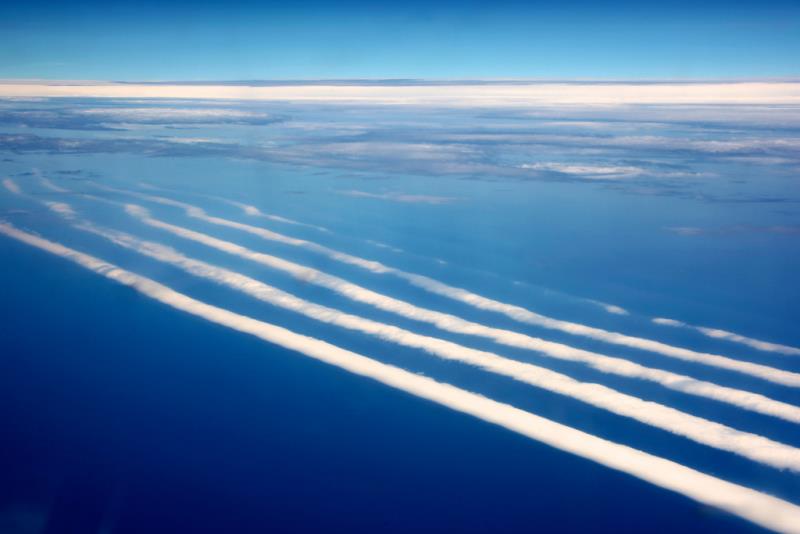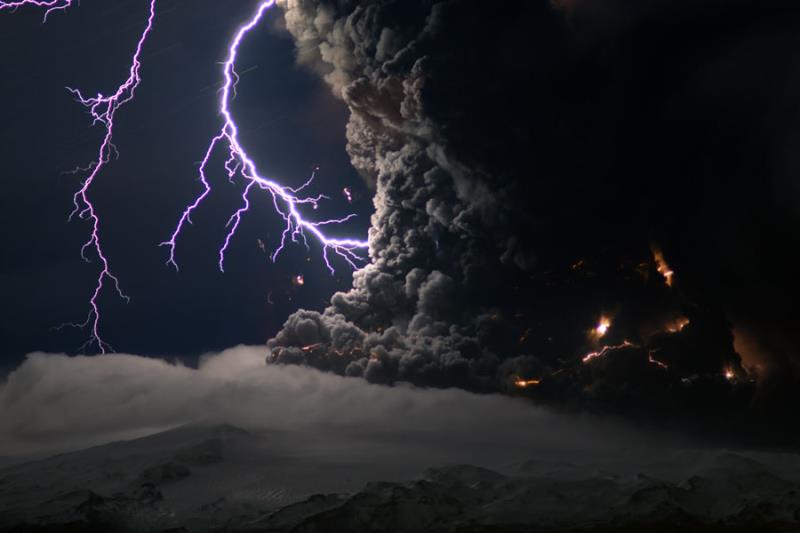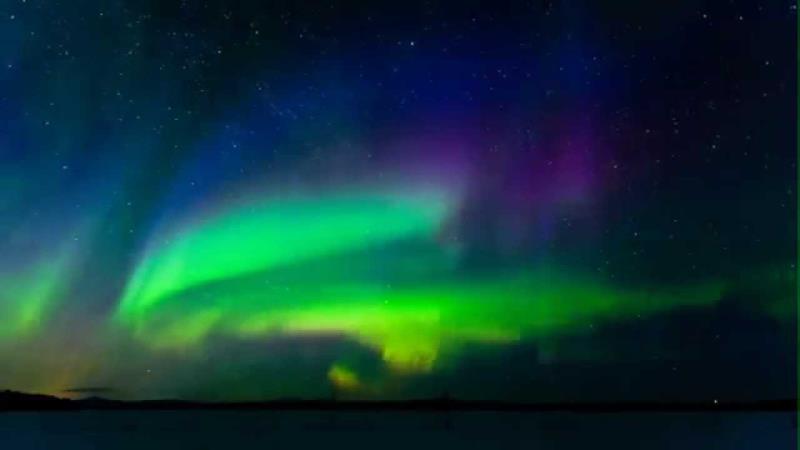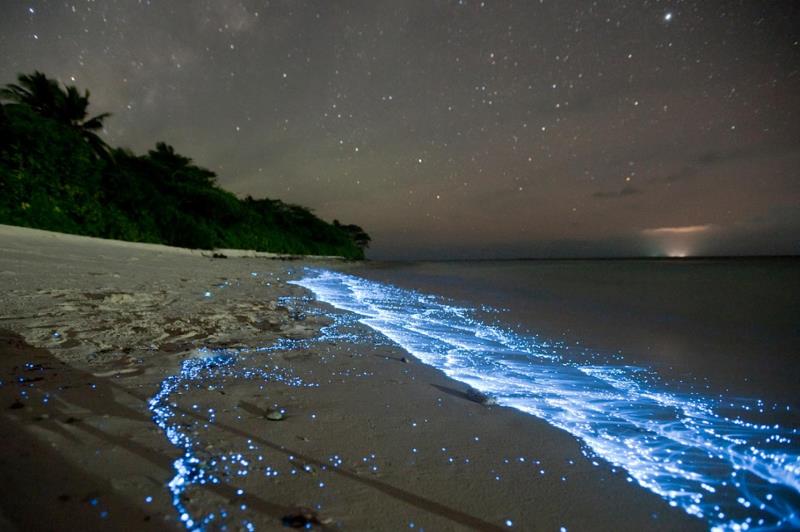5 Morning Glory Clouds
Advertisement
As crazy and weird as the name might sound, the phenomenon associated with that name is crazier. Morning glory clouds are a rare meteorological phenomenon that results when a single stretch of cloud is formed in the sky. It looks like a road made of a long, single cloud. Sometimes these can be seen in a group all parallel to each other.
Mostly observed in the southern part of the Gulf of Carpentaria which is in Northern Australia, the Morning Glory Clouds is an amazing sight to see.

Image Source: c1.staticflickr.com
6 Volcanic Lightning
Advertisement
One look at an image of this phenomenon and it'll look like something from a heavy metal album cover. The most popular theory as to why this happens is that when a volcanic eruption takes places, positively charged rubble is sent out into the atmosphere. These collide with the negatively charged particles present in the atmosphere and this causes lightning. This is extremely rare.

Image Source: apod.nasa.gov
7 Auroras
Advertisement
These heavenly demonstrations of lights are actually a result of the Earth's magnetic field. They are centred on the Earth's magnetic poles. The actual geographic poles are farther than the magnetic poles and hence the lights sometimes extend farther. In the North it is known as Aurora Borealis and in the South, it is known as the Aurora Australis.

Image Source: i.ytimg.com
8 Bioluminescent Waves
Advertisement
Bioluminescent waves may seem to look like an ocean of stars but it actually is the result of tiny organisms called phytoplanktons. Bioluminescence is nothing but generation of biological light by organisms. The most common type of marine bioluminescence is caused by a variety of phytoplankton known as dinoflagellates.

Image Source: news.nationalgeographic.com